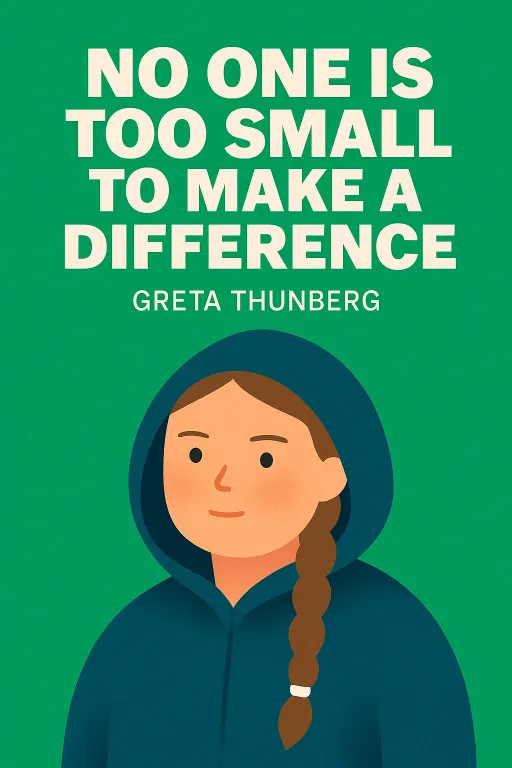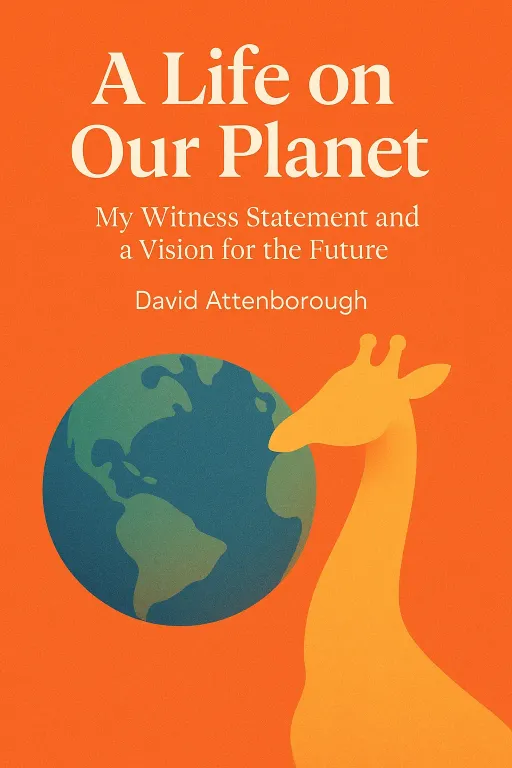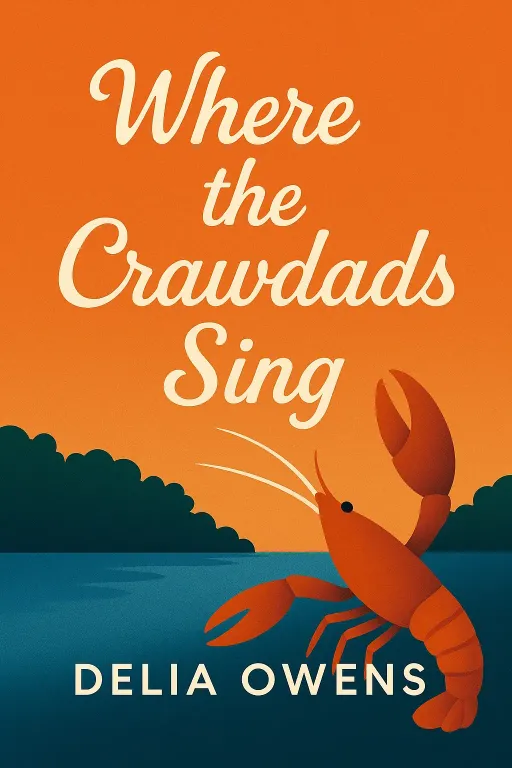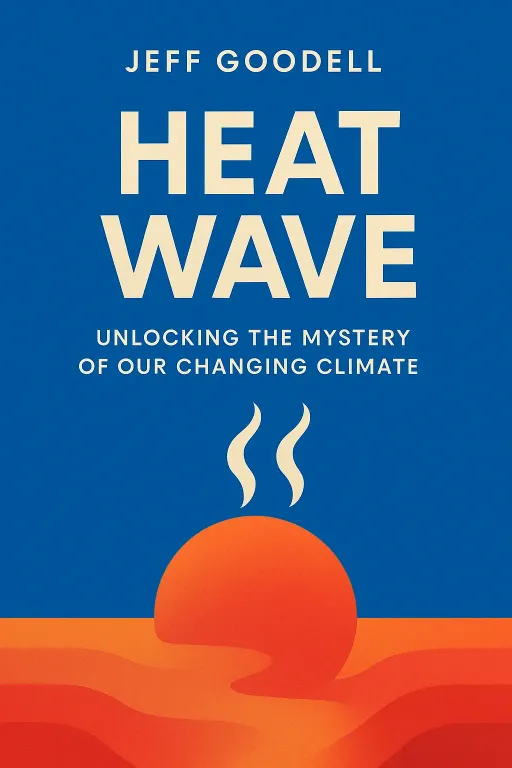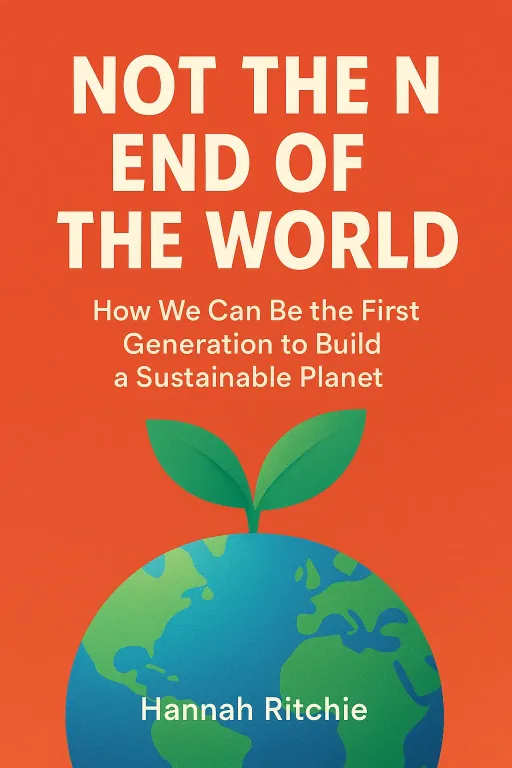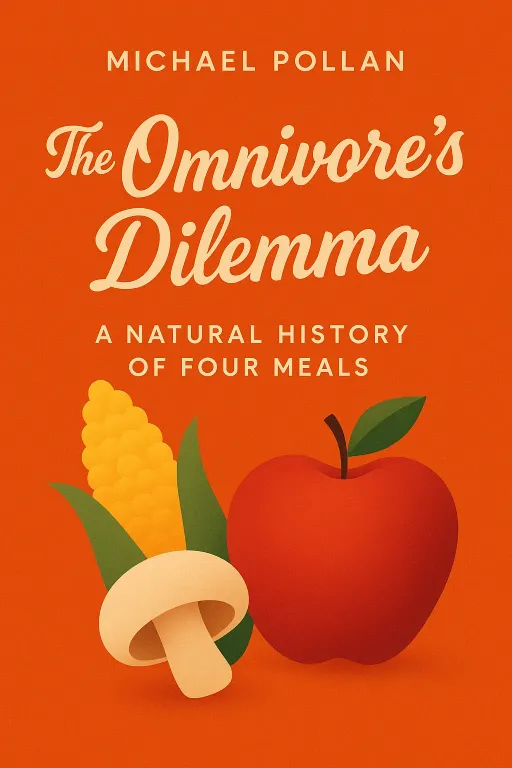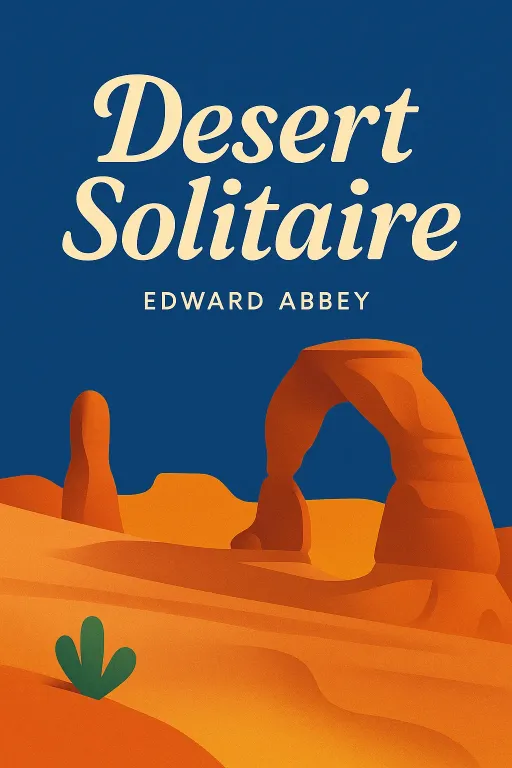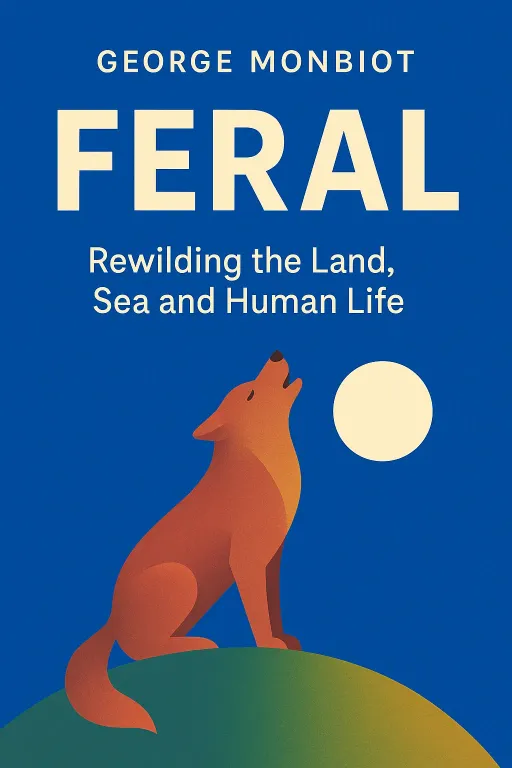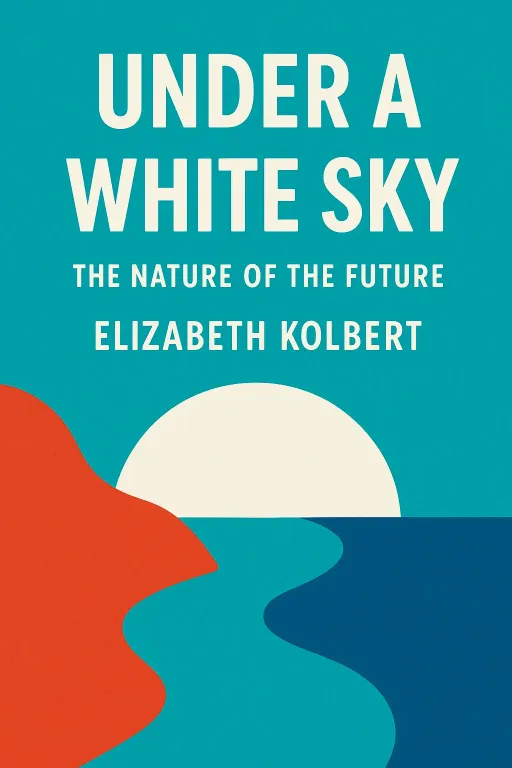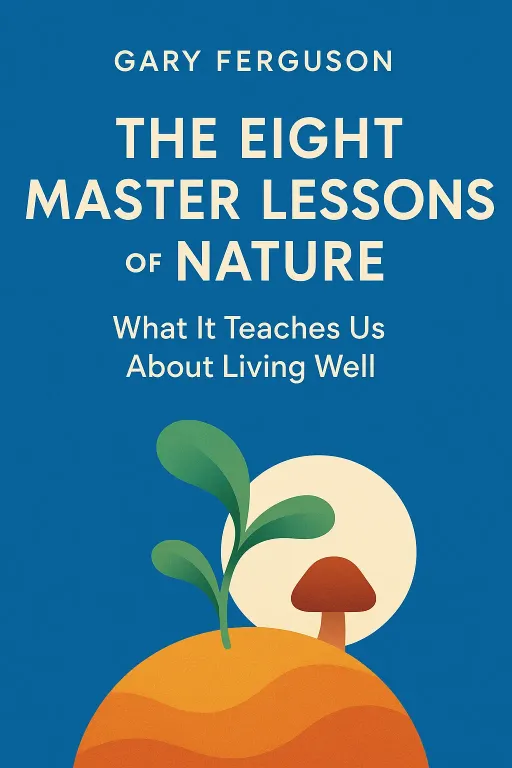
The Eight Master Lessons of Nature
9 minWhat It Teaches Us About Living Well
Introduction
Narrator: Imagine a sixteen-year-old girl named Alexis, lost in the grip of a heroin addiction. After years of failed treatments, her family sends her to a wilderness therapy program in the slickrock canyons of southern Utah as a last resort. A year later, she relapses. But this time, something is different. As the drug enters her system, an image of the vast, beautiful canyon flashes in her mind. The experience is so profound, so real, that it completely ruins her high. She puts down the needle and walks away for good. How can an experience of natural beauty be powerful enough to disrupt the hold of addiction?
This question lies at the heart of Gary Ferguson's book, The Eight Master Lessons of Nature. It argues that modern life has created a dangerous illusion of separation between humans and the natural world, and that by relearning nature's core principles, we can heal not only the planet, but ourselves.
The Illusion of Separation Has Made Us Tramps in Our Own Home
Key Insight 1
Narrator: Ferguson begins by identifying a fundamental problem: we have forgotten that we are a part of nature, not masters of it. He shares a striking story from the 1920s, when an anthropologist asked the Pit River Indians of California for their word for the white newcomers. After some hesitation, an elder explained their word was inalladui, which means "tramp." He said, "Your people move across the land in such a hurry. You have no interest in making connections with the animals or the plants or the people who live there... We think a part of you must be dead inside."
This feeling of being a "tramp"—unconnected and not at home in the world—is the consequence of a worldview that sees humanity as separate and superior. Ferguson contrasts this with an ancient Javanese tale about a Forest and a Tiger who were best friends. The Forest sheltered the Tiger, and the Tiger protected the Forest from humans. But they began to take each other for granted, and the Tiger left. Without its guardian, the Forest was quickly destroyed by humans. And without its home, the Tiger was easily hunted and killed. The story is a powerful metaphor for our own situation. By breaking our relationship with the natural world, we risk the undoing of both.
True Strength Arises from Diversity and Feminine Wisdom
Key Insight 2
Narrator: Nature teaches that strength doesn't come from uniformity, but from diversity. Ferguson recalls a lesson from his mentor in the mountains of Idaho, who asked him why a meadow was filled with so many different kinds of wildflowers. The answer wasn't just about soil or sun. It was about resilience. If a single disease, drought, or insect infestation swept through, a diverse community of flowers with different strengths would ensure that life in the meadow would survive. A field of only one type of flower would be completely wiped out.
This principle extends to human communities and even to our way of thinking. Ferguson argues that our world has for too long suppressed what he calls "feminine" energy—the wisdom of nurturing, relationship-building, and cooperation. He points to the animal kingdom for examples. In Kenya's Tsavo National Park, elephant herds are led by older matriarchs. These females don't lead through brute force, but through deep, accumulated wisdom. They know where to find water during a drought, how to navigate social conflicts, and how to protect the young. Their leadership, based on relationship and knowledge, is the key to the herd's survival. By devaluing these "feminine" qualities in favor of dominance and control, we have created systems as fragile as a field of a single flower.
Disruption Is Not the End, but a Catalyst for Resilient Growth
Key Insight 3
Narrator: In the summer of 1988, massive wildfires raged through Yellowstone National Park, burning nearly a third of its vast landscape. To many, it looked like an absolute apocalypse. The news showed a blackened, desolate world. Yet, Ferguson explains, this destruction was not an end, but a beginning. The fires were a natural, necessary part of the ecosystem's life cycle.
For decades, park policy had been to suppress all fires, which allowed dead wood and underbrush to build up to dangerous levels. This created the fuel for a much larger, more catastrophic fire. Once the fires cleared the land, however, an incredible rebirth began. The heat opened up serotinous pine cones, releasing seeds onto a newly nutrient-rich soil. Wildflowers bloomed in stunning profusion. Wildlife returned, thriving in the renewed landscape. Nature teaches that suppressing small "fires"—whether in a forest or in our own lives—only leads to bigger explosions later. Disruption, while painful, is often the very thing that clears the way for new, more resilient growth.
Elder Wisdom Is the Root System of a Healthy Community
Key Insight 4
Narrator: In both nature and human society, elders serve as living libraries of essential knowledge. Ferguson highlights a tragic and telling example from South Africa, where a group of young, orphaned male elephants grew up to be extraordinarily aggressive, killing more than a hundred rhinoceroses for no apparent reason. Researchers eventually realized the problem: these elephants had grown up without the guidance of older bulls. They had never been taught how to manage their hormones, navigate social rules, or control their aggression. They were powerful, but lost.
This is contrasted with the intricate communication within a redwood forest. Scientists like Suzanne Simard have discovered that the oldest and largest trees, known as "mother trees," are hubs in a vast underground network of fungi. Through this network, they send water and nutrients to struggling saplings, even scaling back their own root systems to give the young more room to grow. They share the wisdom of survival, encoded in chemical signals. When we lose our elders—whether they are ancient trees or wise humans—we lose the root system that nourishes and stabilizes the entire community, leaving the next generation anxious, disconnected, and unable to tell friend from foe.
The Ultimate Lesson Is Found in the Healing Power of Beauty
Key Insight 5
Narrator: This brings us back to Alexis, the young woman whose life was saved by a memory of a canyon. Ferguson argues that beauty is not a luxury, but a fundamental human need and a powerful source of healing. For Alexis, the profound beauty of the wilderness did something no therapy could. It offered her a moment of awe so complete that it lifted her out of her self-destructive cycle. It reminded her of a part of herself that existed before the trauma and addiction—a part connected to something vast, timeless, and beautiful.
The experience was so powerful that years later, as a pediatric nurse and a mother of two, she took her own daughters to that same spot. She wanted to give them the gift of that beauty, to plant a seed of wonder and connection that they could draw on for the rest of their lives. Nature's beauty, Ferguson concludes, has the power to pull us out of ourselves, to heal our relationship with the world, and to remind us that we are part of a story much larger and more magnificent than our own individual struggles.
Conclusion
Narrator: The single most important takeaway from The Eight Master Lessons of Nature is that the story of human separation from nature is a dangerous fiction. We are not visitors here; we are an intrinsic part of the web of life. Our health is tied to the health of the planet, and its wisdom is the key to our own resilience, creativity, and survival.
The book challenges us to do more than just appreciate nature, but to see it as a mentor. It asks a profound question: What wisdom are you ignoring? Look around you, not just in the wild forests, but in the tenacious weed growing in a sidewalk crack, in the complex society of an ant hill, or in the quiet guidance of an elder in your own life. Nature is always teaching, and its most vital lesson may be the one that helps you, finally, feel at home in the world.
